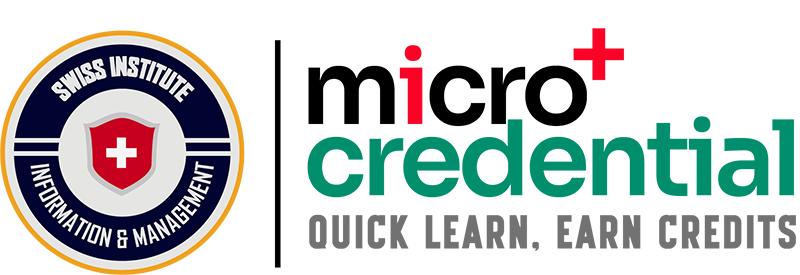Master Award in
Research Methods
Master Award could transfer 20 credits and full tuition fees to Master’s programs by SIMI Swiss and/or Partner Universities.

Master Award in Research Methods
The aim of this award is to develop learners’ ability to design, conduct, and critically evaluate research in transportation and logistics. This includes equipping learners with knowledge of research methodologies, data collection techniques, and analysis methods, as well as fostering skills in articulating research findings and their implications for academic and practical applications.
Could transfer 20 credits and full tuition fee to the Master of Science in Transportation and Logistics (MSc in TL) of SIMI Swiss.
Learning Outcomes:
1. Be able to identify a business area for research and formulate an appropriate research statement or hypothesis.
- 1.1 Select a relevant business area for research within transportation and logistics.
- 1.2 Develop a clear and appropriate research statement or hypothesis for the chosen area.
2. Be able to review and synthesize relevant literature to justify a research design.
- 2.1 Conduct a critical review of existing literature related to the selected research area.
- 2.2 Justify an appropriate research design based on the reviewed literature.
3. Be able to design an initial research proposal for a real industry problem.
- 3.1 Develop a research proposal addressing a real-world issue in the transportation and logistics industry.
- 3.2 Follow given guidelines to structure and present the research proposal effectively.
Topics:
Explaining the importance of scanning business environments in making strategic decisions of an organisation
Course Coverage:
- Business environment definition, features, and types; distinctions between culture and organisational environment; key components such as internal (working capacities, employment relations, job satisfaction) and external factors (consumer group demands, stakeholders, competitors).
- Influences of social, political, and technological factors; short, medium, and long-term organisational commitments; competitor analysis and improvement measures.
Using a variety of tools to critically analyse external business environment
Course Coverage:
- Business environment dynamics including characteristics and changes; tools such as SWOT analysis, market research, consumer surveys, and competitor identification.
- Evaluation of threats, opportunities, and data for informed decision-making.
Using a variety of tools to critically analyse internal business environment
Course Coverage:
- Internal management analysis including employee and management reviews, resource analysis, pricing strategies, product life cycle analysis, and communication strategies.
To review the position of an organisation in its current market
Course Coverage:
- Using strategic business planning tools such as SWOT analysis, Porter’s Five Forces, BCG matrix, and market share assessment to measure organisational positioning.
To analyse the effects of existing plans on an organisation
Course Coverage:
- Impact of organisational planning on performance, stakeholder communication, and policy development; alignment between strategy and structure, performance appraisals, and re-engineering processes.
Identify and analyse mandatory competency and competitive advantages of an organisation
Course Coverage:
- Competitive advantage identification, resource analysis, globalisation impacts, and comparative analysis for monitoring and evaluating competencies.
Discussing the relationship between corporate, business, and operational strategies
Course Coverage:
- Strategic relationships and applications; integration of corporate, business, and operational strategies; effective communication, benchmarking, and the impact of technological advancements.
Use various models and tools to develop strategic options for an organisation
Course Coverage:
- Applying models like Mintzberg’s emergent and deliberate strategies, Ansoff matrix, sensitivity analysis, and gap analysis to formulate strategic options.
Analyse and decide strategic and business options
Course Coverage:
- Strategic option evaluation, incorporating business ethics, stakeholder engagement, benchmarking, and leadership to align with organisational goals.
Developing appropriate vision, mission, and strategic goals for an organisation
Course Coverage:
- Situational analysis, stakeholder engagement, and setting targets aligned with organisational values and environmental factors.
Proposing a suitable structure: stakeholders
Course Coverage:
- Stakeholder identification, role analysis, and strategy formulation for effective participation and performance monitoring.
Developing an agreed strategy plan that addresses all resource implications due to new action plan
Course Coverage:
- Analysis of organisational culture and values; SMART target setting; resource auditing and risk assessment.
Carrying out force field analysis
Course Coverage:
- Identification and management of change forces and their impact on organisational dynamics.
Using various change management models
Course Coverage:
- Applying models like Lewin’s Change Management Model, McKinsey 7-S Model, and Kotter’s 8-Step Model for effective organisational change.
Acquiring leadership and change agent skills
Course Coverage:
- Developing leadership and change management skills for strategic implementation, including effective attitudes and appropriate knowledge.
To develop a time schedule for implementation of the plans
Course Coverage:
- Time management and scheduling strategies for effective plan implementation.
To develop key success factors in order to monitor the implementation of the strategic plan
Course Coverage:
- Defining and monitoring success factors for strategic plan implementation using evaluation and control systems.
To analyse potential risk
Course Coverage:
- Risk identification, analysis, and development of contingency plans to mitigate risks during implementation phases.
Indicative reading list
Core texts:
-
Qualitative Research Methods.Monique Hennink, Inge Hutter, Ajay Bailey · 2020.
-
Research Methods For Business: A Skill Building Approach,Uma Sekaran, Roger Bougie · 2019.
-
Willey.Trochim , Donnelly, Kanika Arora (2015), Research Methods: The Essential Knowledge Base 2nd Edition, Cengage Learning.
Additional reading:
- Mark N.K. Saunders, Philip Lewis, Adrian Thornhill (2015), Research Methods for Business Students (7th Edition), Pearson.
Entry requirements
To enroll The Master Award, the learner must possess:
- Graduated with a Bachelor’s degree from an accredited university or achieved a Level 6 Diploma according to the European Qualifications;
- For a degree from non-recognized universities; The learner should have followed Accreditation of Prior Experiential Learning for Qualifications (APEL.Q) policy of MI Swiss and/or University Partners;
- Learners must be over 21 years old.
English requirements
If a learner is not from a predominantly English-speaking country, proof of English language proficiency must be provided.
- Common European Framework of Reference (CEFR) level B2 or equivalent;
- Or A minimum TOEFL score of 101 or IELTS 6.5; Reading and Writing must be at 6.5 or equivalent.
The SIMI Swiss reserves the highest decision-making power for admission whether to accept or not accept after a specific review of each candidate’s profile to ensure that they can comprehend and gain benefits when participating. For the fake university or diploma mills, Partners Universities shall not be accepted.
After graduating with Master Award, students receive all certified documents from the SIMI Swiss.
Certified Documents:
- e-Certificate from the Swiss Information and Management Institute (SIMI Swiss).
- Hard copy certificate from the Swiss Information and Management Institute (SIMI Swiss) – Optional.
- Accreditation of Prior Experiential Learning for Qualifications (APEL.Q) certified from University Partners for credit and tuition fee transfer.
Because the program is accredited and recognized, students can easily use certified in the working environment and have many opportunities for career advancement. In addition, in case if you want to study for a SIMI degree, students can convert all credits and the full paid tuition fee when participating in the SIMI program.
The SIMI Swiss’ Master Award means:
SIMI Swiss Master Award is the award at the master’s level and is equivalent to:
- Level 7 certificate of Regulated Qualification Framework (RQF) of UK
- Level 10 certificate of Scottish Credit and Qualifications Framework (SCQF)
- Level 7 certificate of Credit and Qualifications Framework (CQFW)
- Level 7 certificate of European Qualifications Framework (EQF)
- Level 9 certificates of the Australian Qualifications Framework (AQF)
- Level 7 certificate of ASEAN Qualifications Reference Framework (AQRF)
- Level 9 certificate of the African Continental Qualifications Framework (ACQF)
Students can convert all credits and the full tuition fee when participating in the SIMI Swiss academic programs if they want to study for an academic degree.
Credits transfer:
Learners can accumulate 20 credits from the Master Award program when participating in the Master of Science in Transportation and Logistics (MSc in TL). Please see the credit transfer policy HERE
Tuition fee transfer:
When participating in the MSc in TL program, students who have graduated 1 Master Award will receive a discount of full tuition fee which you paid. Please see the tuition fee transfer HERE
The SIMI Swiss micro-credential program allows for the transfer of credits and tuition fees into full degree programs from SIMI Swiss. SIMI Swiss reserves the right to limit admissions once the number of students exceeds the quotas.
Apply Policy:
- To participate in the SIMI Swiss micro-credential program, students need to meet the entry criteria corresponding to each level. Please see the “Entry” tab for more details.
- SIMI Swiss will not accept applicants if their entry qualifications are from diploma mill universities or schools/universities that are not accredited.
- For Master Award programs, if an entry bachelor is unavailable, students must demonstrate a minimum of 5 years of work experience in the relevant field. Please note that a bachelor’s degree is required for the Master’s program at SIMI Swiss so that you could study Master Award but could not move to the Master’s program of SIMI Swiss.
- English is not a mandatory entry requirement for short course programs, but candidates need to ensure that English is used in reading documents, listening to lectures, and doing assignments. Candidates should note that English is a mandatory requirement when switching to an academic program at SIMI Swiss.
Apply Process:
- Choose the program that suits your requirements. Note that applicants without a university degree will not be able to participate in the program at Master’s level, and applicants without a Master’s degree will not be able to participate in the program at the Doctoral level.
- Email your application to support@simiswiss.ch with all the required documents. You could download the application form here.
- Our admission department will contact you and guide you through further processes if the registration documents need to be supplemented.
- SIMI Swiss will issue the Letter of Acceptant (LOA). You will proceed to the next steps according to the instructions and pay tuition fee.
- SIMI Swiss will issue a student confirmation letter, login account to the e-learning system and related documents.
- You have become an official SIMI Swiss student and enjoy your study journey.
The SIMI Swiss micro-credential program is fully online, allowing you to study anytime, anywhere. You have the option to attend live classes with SIMI Swiss. The final exam will be uploaded to the system and evaluated by the academic panel of SIMI Swiss. Students must submit assignments on time; failure to do so will result in the student being considered to have discontinued the program.
Pricing Plans
Take advantage of one of our non-profit professional certified programs with favorable terms for your personal growing carreers.
- Live Class (Option)
- Full online videos
- e-Books
- Self study contents
- Online tutor videos
- Assignment guide
- e-Certificate
- Hard copy certificate
- Accreditation of Prior Experiential Learning for Qualifications (APEL.Q) certified from University Partners for credit and tuition fee transfer
- Accreditation & Recognition certified from University Partners.
- Deliver hard copy certificate and all certified documents to your home
- Transfer full credits & tuition fees to equivalent academic programs
- Get more support tuition fees and scholarships when become University Partners' international students
- (*) In the event that you receive a scholarship or discount, the fee you should transfer is the amount you actually paid
SHORT COURSES NETWORK
Contact us
If you interested this course, please feel free to contact with us! Please note that this program is a not for profit and learning with full online model.
